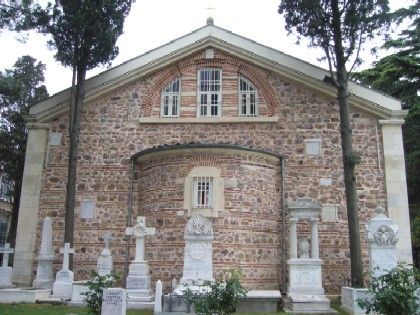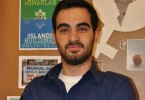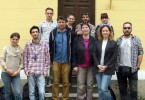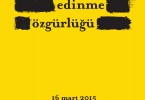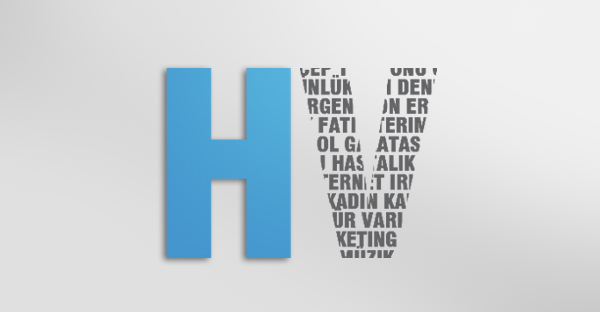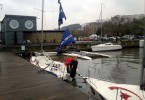Niyazi Dalyanci
The debate over the reopening of the Orthodox Seminary on top of Heybeliada, one of the Princes’ islands in the Marmara Sea, was launched once again when the new U.S. President Barack Obama visited Istanbul in April this year and advised his hosts that such a move would send “positive signals” about the improvement of human rights and religious practices in Turkey. Between April and now, the debate is continuing in full steam, but so far there is no indication that concrete steps would be taken to this effect.
The Orthodox Seminary of Aghia Triada (Holy Trinity) that was training priests since 1844 was closed down in 1971 after a Constitutional Court ruling that banned all private institutions of higher education in Turkey. Since then, the beautiful building sprawling over one of the two hills of Heybeliada, also known as Halki in Greek, has been kept in perfect functional order by the Orthodox Patriarchate of Fener with its classrooms and dormitories in the expectation that it would open its doors to young men who choose to become clerics.
It was not only Obama’s comments that brought back the reopening of the seminary on Turkey’s agenda. In June, Erdal Safak, one of the columnists of the Sabah newspaper, wrote from Brussels that Turkey’s ambassador to the European Union, Volkan Bozkir, at an informal luncheon told a group of visiting Turkish journalists that Turkey might buy time for the opening of its ports to Greek Cypriot vessels in exchange for reopening the seminary. According to the EU enlargement protocol, which Turkey has signed, Ankara has to allow Greek Cypriot vessels to use Turkish ports and Greek Cypriot airplanes land in Turkish airports, no later than by the end of 2009.
Safak’s report from Brussels was promptly denied by his eight colleagues who were also present at the luncheon. In a joint statement they said, “Ambassador Volkan Bozkir did not mention such an eventuality either on-the-record or off-the-record.”
The spokesman of the Foreign Ministry answering questions by reporters preferred to give an oblique response saying, “We have not received any request to this effect.”
But the news, whether true or false, established in the minds that Turkey is probably following a policy of tit-for-tat for the reopening of the Halki seminary. In fact, Safak defending himself said: “The advisors of the prime ministry and the foreign ministry are of the opinion that the reopening (of the seminary) can only be carried out in exchange for a substantial gain. And when you ask them what that gain would be, they mention issues like dampening the insistence for opening Turkish ports to Cypriot vessels or lifting of the embargo against the Turkish Republic of Northern Cyprus (KKTC) or as the prime minister said in a television interview, the recognition of the rights of Turkish minority in Western Thrace.”
Egemen Bagis: “This is our internal affair.”
Turkey’s chief EU negotiator Egemen Bagis argued the opposite. In an interview he gave to the Athens newspaper Kathimerini, he said the issue of the seminary is Turkey’s internal affair.
“I believe that the seminary must be reopened in order to provide the services that Turkish citizens needs. The Orthodox community in Turkey consists of Turkish citizens who pay their taxes, who serve in the army and who contribute to this country. If they need clerics, we must help educate them. This is our internal affair. The situation of the Turkish minority of Western Thrace is the internal affair of Greece. The Greek government has to take up the problems related with its minority at the same time. Problems related to the appointment of their religious leaders, unemployment, and the problems of the minority associations. However, I do not see reciprocity as an obligation. We must solve our internal problems simultaneously,” Bagis said.
Meanwhile in Ankara Education Minister Nimet Cubukcu ordered her bureaucrats to draft a report on the possible scenarios under which the seminary could be opened. According to the Turkish media, the report stated that legal amendments were necessary for the opening of the Halki Seminary either as a clerical vocational school or as a higher level of learning in Theology affiliated with a Turkish university.
Erdogan: “We have received no request so far.”
While the debate was still going on Prime Minister Tayyip Erdogan came up with a surprise announcement last week as he was departing for the G-8 summit in Italy.
“We have not received any proposal or request concerning the seminary. If we receive any proposal we will give it due evaluation,” said Erdogan answering questions by reporters at the airport.
Kezban Hatemi, the lawyer of the Orthodox Patriarchate, responded to Erdogan giving a long list of verbal and written requests to the government over the years for the reopening of the seminary.
“In August 2003, Patriarch Bartholomeos met with Erdogan and discussed the seminary. Bartholomeos explained to Erdogan that the closure of the seminary was in violation of the Treaty of Lausanne in 1923. AndErdogan told him that his government will take initiative for the solution of these problems and expressed his goodwill in approaching the issue,” said Hatemi.
Bartholomeos in an interview to Italy’s La Repubblica newspaper in September 2006 complained that he has sent “many letters to Ankara but received no reply” concerning the issue.
“We are the only church that does not possess the means to train clerics. The ecumenical patriarchate has been present here for 17 centuries but it is not recognized as a legal entity. This is unacceptable,” the Patriarch told the Italian newspaper.
Father Dossitheos, the spokesman of the Patriarchate at a recent interview with a television channel, said that they are willing to open the seminary as a vocational school under the control of the Education Ministry. He, too, complained about Ankara’s insistent silence to many “letters written to the authorities.”
In the June 25, 2004 issue of the Radikal newspaper, one of the front page titles read, “Formula found for the reopening of seminary.” The news gives the happy tidings that within the framework of harmonization of Turkish legislation with EU acquis a formula has been found for the reopening of the Halki seminary.
Five years later, it seems the seminary issue is still making the same rounds.

